Schedule
The 2025 conference brings together scientific leaders and emerging researchers to discuss advancements in Hispanic/Latino brain health and cognitive aging using the Hispanic Community Health Study/Study of Latinos (HCHS/SOL) and Study of Latinos – Investigation of Neurocognitive Aging (SOL-INCA) study data.
All Times are Pacific Standard Time
March 16, 2025
Travel day to San Diego – Hilton La Jolla Torrey Pines
Welcome and Networking Reception @ Hilton La Jolla Torrey Pines
6:00pm – 8:00pm
March 17, 2025
Day 1 at Martin Johnson House
(Meet in lobby at 8am for shuttle)
Breakfast, Welcome and Introductions
8:30am – 10am
The Hispanic Community Health Study/Study of Latinos (HCHS/SOL): An Overview
10:00am – 10:30am

Speaker:
Daniela Sotres-Alvarez, University of North Carolina
Overview of the funding landscape for brain health studies, Q&A
10:30am – 11:00am
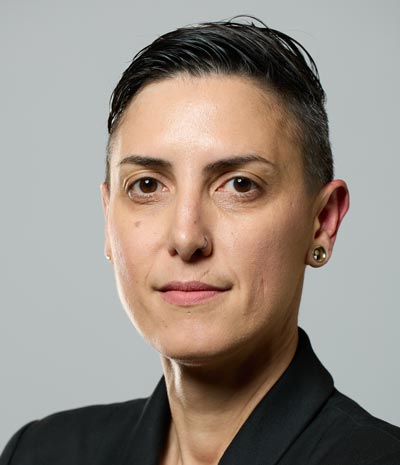
Speaker:
Stefania Forner, Alzheimer’s Association
Study of Latinos – Investigation of Neurocognitive Aging, Q&A
(R01 AG075758)
11:00am – Noon

Speaker:
Hector Gonzalez, UC San Diego
Lunch Break
Noon – 1:30pm
Measures of Cerebrovascular Injury and AD Atrophy in a study of Latinos, Q&A
(RF1 AG054548)
1:30-2:30pm

Speaker:
Charles DeCarli, UC Davis
Break
2:30-3pm
Early and Lifecourse Socioeconomic Adversity and Dementia Risk in Hispanic/Latinos, Q&A
(RF1 AG077639)
3pm – 4pm
Speaker:
Carmen Isasi, Albert Einstein College of Medicine
HCHS/SOL processes and policies for collaboration; expectations of investigators; Q&A
4pm – 5pm

Speaker:
Linda Gallo, San Diego State University

Speaker:
Lourdes Guerrero, UC San Diego
Networking dinner
TBD
March 18, 2025
Day 2 at Martin Johnson House
(shuttle available to/from hotel)
Breakfast
9-10am
Introduction to HCHS/SOL & SOL-INCA variables and where to find information about them
9am – 10am

Speaker:
Linda Gallo, San Diego State University

Speaker:
Daniela Sotres-Alvarez, University of North Carolina
Hands-on Data Session Pro tips for using HCHS/SOL & SOL-INCA data; Q&A
10am – 1:00pm
- Introduction to complex design
- Specifics about the complex design in the HCHS/SOL & SOL-INCA context
- some basic descriptive r runs to illustrate the design using simulated data
- Introduction to basic complex design analyses
- some basic descriptive r runs to illustrate the design using simulated data along with theory
- Specifics about the complex design in the HCHS/SOL & SOL-INCA context

Speaker:
Wassim Tarraf, Wayne State University
Lunch Break
1:00pm – 2:00pm
Hands-on Data Session Continues
2:00pm – 5:00pm
- Introduction to longitudinal data analyses in disparity aging research (1.5 hrs)
- Data exploration using nlive R package (e.g. by cluster)
- Introduction to Mixed effect models (and a little teaser on nonlinear analyses)
- Time to run codes and Work on research aims or manuscript proposals in WAGs
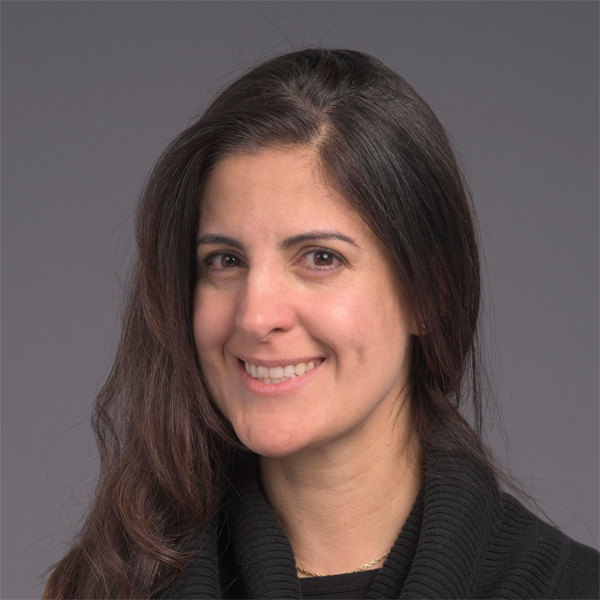
Speaker:
Ana Capuano, Rush University

Speaker:
Wassim Tarraf, Wayne State University

Speaker:
Daniela Sotres-Alvarez, University of North Carolina
Dinner on your own
March 19, 2025
Day 3 at the Hilton La Jolla Torrey Pines
Networking Breakfast and Data/Writing Accountability Group Sessions
8:00am – Noon
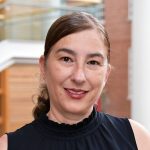
Daniela Sortes-Alvarez, DrPH
Dr. Sotres-Alvarez, DrPH (UNC, Biostatistics, 2010), is a Research Professor and the Associate Director for Population Health Research at the Collaborative Studies Coordinating Center in the Department of Biostatistics in the Gillings School of Global Public Health. Her research experience and interests are focused on applications within the field of nutritional epidemiology, including statistical applications to dietary intake, physical activity, and sedentary behavior as risk factors of chronic disease and birth and child outcomes. She is co-Principal Investigator at the Coordinating Center of the Hispanic Community Health Study / Study of Latinos (HCHS/SOL), the largest multi-site community-based cohort of Hispanic/Latino adults in the US.

Hector M.González, PhD
Professor
Hector M. González is a Professor of Neurosciences in the School of Medicine at the University of California, San Diego. Dr. González is a population neuroscientist and the Principal Investigator of the Study of Latinos-Investigation of Neurocognitive Aging (SOL-INCA), which is the largest study of Latino cognitive aging, impairment, and disorders among diverse Latinos. SOL-INCA receives support from the National Institute of Aging (NIA). For the past 20-years, his research has been dedicated to the health and cognitive aging of Latinos. Dr. González has published over 100 peer-reviewed manuscripts, primarily focused on Latino health and cognitive aging. Dr. González has served on the 2016 and 2019 Alzheimer’s Disease and Related Dementia (ADRD) Summit and National Academies of Sciences, Engineering, and Medicine panels. Looking ahead to the future of neuroscience, Dr. González is dedicated to diversifying and increasing the Latino scientific workforce. To that end, he co-leads the UCSD-SDSU San Diego Alzheimer’s Disease-Resource Center for Minority Aging (AD-RCMAR), which uses SOL-INCA and other data resources and expertise to provide mentorship to emerging Latino scientists pursuing scientific careers in cognitive aging and dementias.

Charles DeCarli, MD
Professor
Charles DeCarli, MD, is Distinguished Professor of Neurology at the University of California in Davis, California and recipient of the Victor and Genevieve Orsi Chair in Alzheimer’s Research. He is Co-Director of the UC Davis Alzheimer’s Disease Research Center (UCD ADRC), a United States National Institutes of Health funded Alzheimer’s research center. He is also Chief of the Imaging of Dementia and Aging (IDeA) laboratory. His research focuses on using advanced structural and functional brain imaging to study normal aging, mild cognitive impairment and dementia and the role of genetics, diversity, cerebrovascular and Alzheimer’s disease on these processes. He is a recipient of the J. Allyn Taylor International Prize in Medicine—Imaging of the Aging Brain in recognition of his work.
He also serves as PI of the Diverse Vascular Cognitive Impairment and Dementia (Diverse VCID) study which aims to recruit 2250 non-Hispanic White, Hispanic/Latino and Black African Americans to examine the impact of vascular brain injury on cognition from 17 sites across the United States, Co-PI of the Study of Latinos Investigation of Neurocognitive Aging (SOL-INCA-AD), a study of more than 6,000 Hispanic/Latinos with diverse heritage from four sites across the United States, PI of SOL-INCA-MRI, an ancillary study to SOL-INCA that acquires and analyzes MRI from 2800 participants to understand the influence of vascular risk factors on MRI and Co-PI of Early and life course socioeconomic adversity and dementia risk in Hispanics/Latinos. These projects emphasize his commitment to understanding the biological, genetic, and societal factors influencing of cognitive aging and transition to dementia in diverse communities.
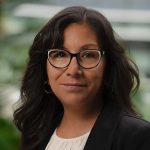
Lourdes Guerrero, EdD, MSW
Associate Director
Lourdes Guerrero’s Bibliography
Dr. Lourdes Guerrero is the Associate Director of the SOL-INCA Lab and serves as a Multiple Principal Investigator for UCLA’s RCMAR and NIH STEP-UP Coordinating Centers, as well as co-Investigator with the NIH Diversity Program Consortium/UCLA Coordination and Evaluation Center.
A bilingual, bicultural researcher, Dr. Guerrero has expertise in medical and higher education and community-based services. She began at UCLA’s David Geffen School of Medicine as Director of Evaluation and Research for Graduate Medical Education, contributing to UCLA’s Clinical and Translational Science Institute. Prior roles include Director of Special Projects for UC College Prep Online and Programs and Communication Director for Excelencia in Education in Washington, DC. She has held board positions with nonprofits such as Ready, Set, Read! and MEND and advises groups like the UC Berkeley ChicanX LatinX Alumni Association.
Dr. Guerrero earned her Doctorate in Education from UCLA, a Master of Social Work from Catholic University, a Master of Pastoral Ministry from the Franciscan School of Theology, and a BA in Chicano Studies from UC Berkeley.
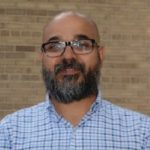
Wassim Wassim Tarraf, PhD
Associate Director
Data Analytics, Biostatistics Core
Wassim Tarraf, PhD is Associate Professor of Gerontology and Healthcare Sciences at Wayne State University. He leads the biostatistical work for several NIA funded ancillary studies focused on cognitive aging and ADRD risk factors among Latinos, including SANAR. Dr. Tarraf, is also the Analysis Core co-leader for the NIA-funded Michigan Center for Urban African American Aging Research (MCUAAR) and a faculty affiliate with the Michigan Center for Contextual Factors in Alzheimer’s Disease (MCCFAD).
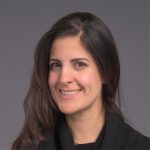
Ana Capuano
Rush University
Dr. Capuano is an Associate Professor of Neurological Sciences in Biostatistics. She leads the Data Management and Statistical Core of the Rush Alzheimer’s Disease Research Center and is a faculty biostatistician of the Rush Alzheimer’s Disease Center. She is a visiting scholar in statistical genetics at Harvard T.H. Chan School of Public Health. With hundreds of original peer-reviewed publications cited by over six thousand other scientific works, Dr. Capuano has been invited to lecture nationally and internationally. She holds elected leadership positions in multiple professional groups including the American Statistical Association (ASA) Statistics and Data Science in Aging (SDSA), the Steering Committee of the National Alzheimer’s Coordination Center (NACC) and the Design and Data Analytics (DaDA) Professional Interest Areas, an assembly of The Alzheimer’s Association ISTAART. She collaborates, consults, and provides mentorship to several scientists on the application of modern statistical methods in epidemiological studies including the research on the association of molecular (e.g. proteomics), environmental factors (e.g. violence, pollutants), psychiatric/psychosocial factors (e.g. stress, personality, neuropsychiatric symptoms), and comorbidities (e.g. diabetes, kidney) with age-related conditions. Capuano’s methodological interests include longitudinal models, non-linear mixed models, constrained ordinal class of models, and study design in comorbidities and disparity research including the study of Latino cognitive aging.
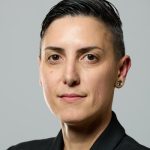
Stefania Forner, Ph.D.
Alzheimer’s Association
Stefania Forner, Ph.D., is director, Medical & Scientific Relations at the Alzheimer’s Association. In this role, she oversees a portfolio of the Association’s Medical and Scientific grants team. As the world’s largest nonprofit funder of Alzheimer’s research, the Association is currently investing more than $430 million in over 1,110 active best-of-field projects in 56 countries spanning six continents.
She provides leadership to the International Research Grant Program (IRGP), which funds investigations to advance our understanding of Alzheimer’s disease, identify new treatment strategies, improve care for people with dementia, and further our knowledge of brain health and disease prevention. She also oversees numerous fellowship programs, including the Zenith Fellows Program and the Global Health Leaders Program alongside the Global Brain Health Institute and Alzheimer’s Society in the United Kingdom.
Representing the Alzheimer’s Association, Dr. Forner serves as the co-chair of the Research Workforce and Early Career Development for Health Research Alliance, which works to foster “an equitable, diverse, motivated and healthy research workforce.” She is passionate about helping early career investigators to advance in the field through the development of resources such as webinars about the Association’s funding programs and networking opportunities for awardees. Dr. Forner provides critical leadership to the Association’s Alzheimer’s dementia research initiatives, which advance vital work toward methods of treatment, prevention and, ultimately, a cure.
Dr. Forner holds a Ph.D. and M.Sc. in pharmacology from the Federal University of Santa Catarina, Brazil. Dr. Forner did her postdoctoral training at University of California, Irvine.

Linda C. Gallo, Ph.D.
Clinical Psychologist
Dr. Linda Gallo is a Clinical Psychologist with specialized training in Behavioral Medicine and a Professor of Psychology at San Diego State University, where she also serves as Director of the South Bay Latino Research Center within the College of Sciences. She is the Principal Investigator of the Hispanic Community Health Study/Study of Latinos San Diego Field Center and has been a Co-Investigator in the SOL-INCA studies since their inception. Dr. Gallo’s research centers on advancing health equity, with a focus on the social, behavioral, and psychological determinants of cardiometabolic health and aging. Her work emphasizes the development and evaluation of culturally tailored interventions to improve health outcomes in Hispanic/Latino populations. Dr. Gallo is deeply committed to mentoring and training aspiring scientists from traditionally underrepresented backgrounds, helping to build a more inclusive and equitable workforce.
